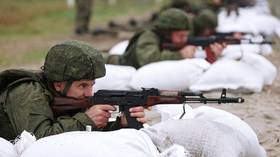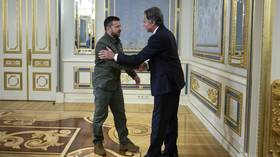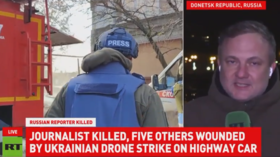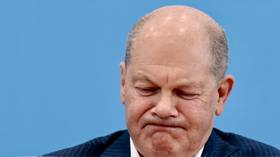Putin to personally address mobilization issues with Russians
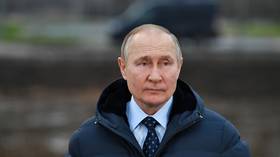
Russian President Vladimir Putin has said he plans to personally address people’s concerns linked to the partial mobilization, by holding a public meeting. The gathering is expected to take place during his upcoming visit to the central Tverskaya Oblast.
“I will also certainly meet with people, talk to them,” Putin told the regional governor, Igor Rudenya, on Monday, during a discussion about various issues linked to the recent mobilization. The people need “to be heard,” the president maintained, adding that he wants to “have feedback” on the mobilization efforts.
The president also called on the governor to promptly collect all data on issues that may have arisen during the mobilization and to inform him “in advance.” He is expected to arrive in Tverskaya Oblast for a working trip later this week.
Putin announced the end of the partial mobilization last week. Russia had fully met the target of calling up 300,000 troops that had been set out in the presidential decree, the defense ministry said at that time. On Monday, he said that 80,000 troops had already been sent to the combat zone, and 50,000 of them have taken part in military operations.
The president ordered the partial mobilization of reservists in Russia on September 21. The Defense Ministry said at the time that it planned to boost the strength of the standing army by calling up reservists amid the military campaign in Ukraine, which Moscow launched in late February.
People who were called to arms in various regions reported some issues linked to the mobilization campaign on a number of occasions, including a lack of equipment or supplies as well as payment delays. The Kremlin admitted the issues and created a special coordination committee to ensure better supplies for the newly drafted troops. “Measures are being taken, and all these issues are to be resolved,” the presidential spokesman Dmitry Peskov said in late October.
Russia sent troops into Ukraine on February 24, citing Kiev’s failure to implement the Minsk agreements, designed to give the regions of Donetsk and Lugansk special status within the Ukrainian state. In February 2022, the Kremlin recognized the Donbass republics as independent states and demanded that Ukraine officially declare itself a neutral country that will never join any Western military bloc. Kiev insists that the Russian offensive was completely unprovoked.
In early October, the Donetsk and Lugansk People’s Republics, as well as the Zaporozhye and Kherson regions, officially became part of Russia following referendums that saw the majority of local residents vote in favor of the accession.
